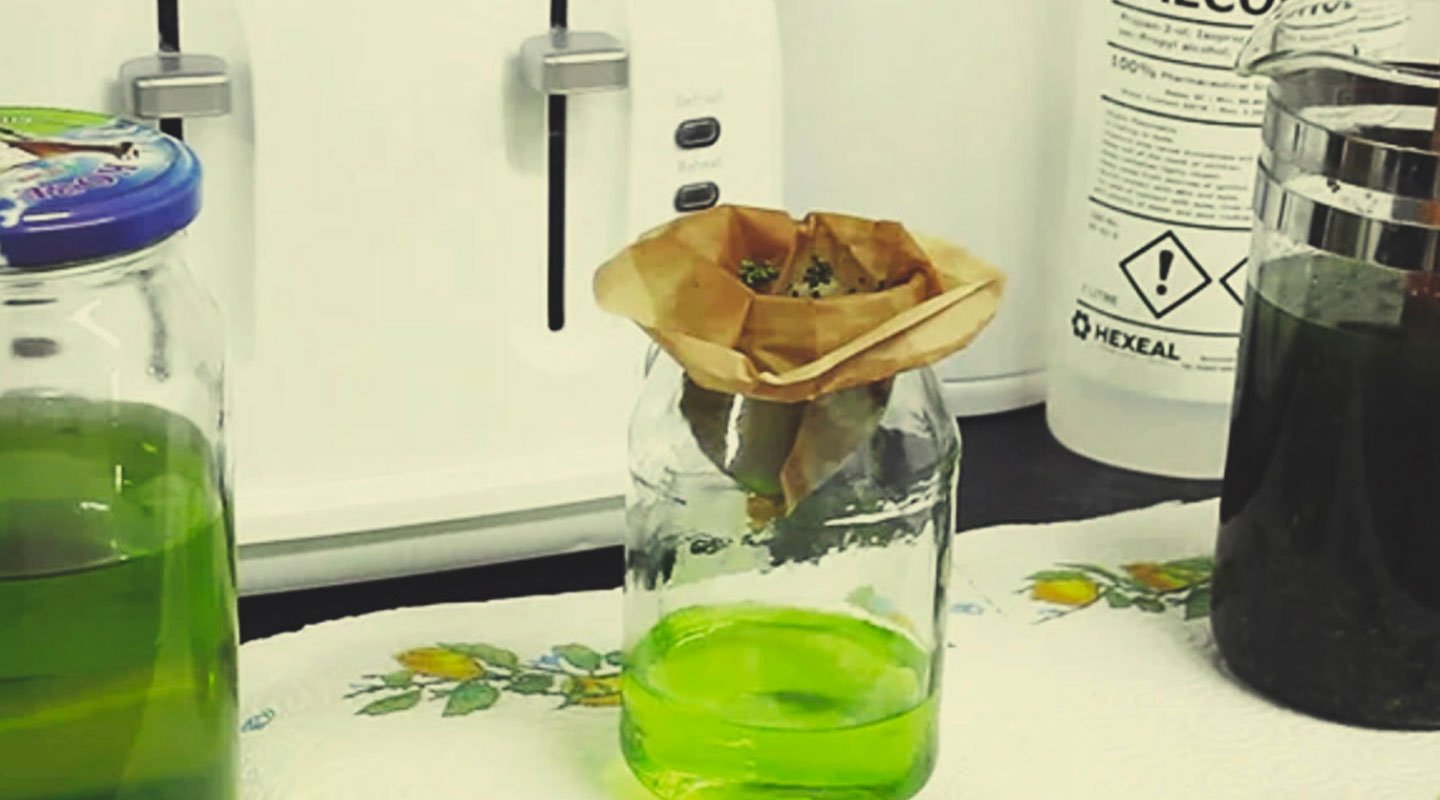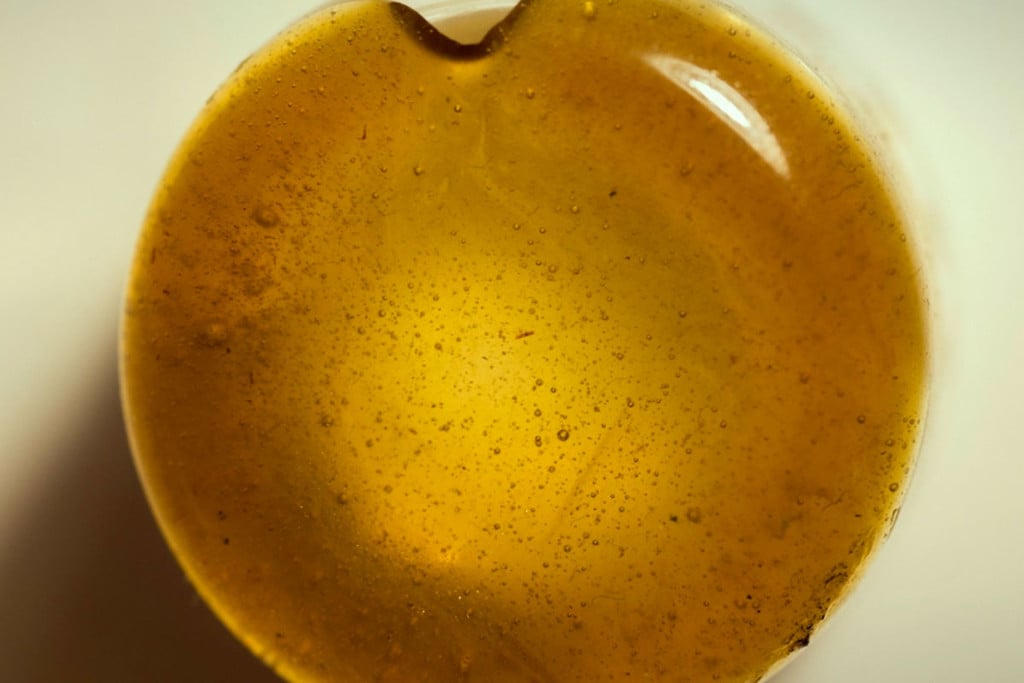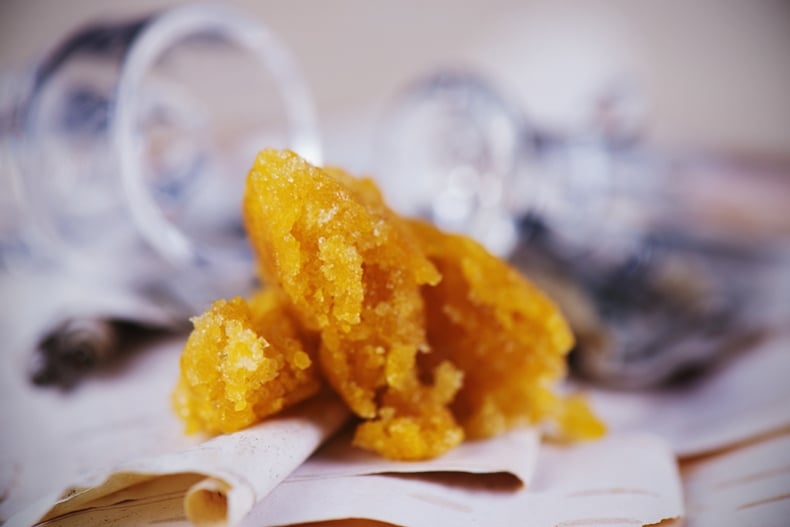.

Who Is Rick Simpson, and What Is RSO Oil?
Rick Simpson oil holds the title of one of the most potent cannabis extracts, and one of the most controversial. Proponents claim it can help to treat conditions that modern medicine often fails to, but critics of the preparation are quick to call out these bold claims. Learn more about RSO, including how to make it and how it differs from CBD oil.
Contents:
There are myriad ways to use cannabis, from smoking flower and hitting dabs to munching on delicious edibles. However, oil extracts offer one of the most potent methods of getting high. Among these preparations, Rick Simpson oil (RSO) stands out as one of the most well-known, and controversial. But most people don’t take RSO with the sole goal of getting baked. This form of cannabis oil rose to fame following the release of a documentary that claimed it held great healing powers—including the potential to treat cancer.
Despite the lack of clinical evidence to back up these statements, RSO made huge waves on social media and beyond. Since its spread, thousands of anecdotal accounts have sprung up that testify to its effectiveness for a plethora of health conditions.
But RSO, and the movement it catalysed, isn't without its critics and sceptics. Although ongoing preclinical studies are investigating the anti-tumour effects of cannabinoids, many experts believe it’s far too early to support the bombastic statements surrounding RSO.


Who Is Rick Simpson
Rick Simpson became an eminent figure in the cannabis community and beyond after the 2008 release of Run From the Cure, a documentary that details his personal discovery of high-potency cannabis extracts.
Simpson experienced a work-related injury while working as an engineer in Nova Scotia, Canada. During a routine job in 1997, he took a autumn, hit his head, and fell unconscious. Despite making a recovery following a visit to the hospital, Simpson experienced persistent dizziness and ringing in his ears (a condition known as tinnitus).
Conventional pharmaceutical treatments failed to hit the mark. Simpson felt dissatisfied as the medical system failed to provide the relief he sought. So, he took it upon himself to find the answers, and eventually came across cannabis. After viewing a television programme about the plant in 1997, he requested a joint from a close friend.
To his surprise, the plant helped him manage his symptoms. In an overly optimistic move, Simpson told his doctor about his findings and requested a medical cannabis prescription. His doctor refused. This response clearly bothered Simpson, and made him question the medical paradigm altogether.
He endured several more years of torment from his worsening condition, and even reached the point where he considered ending his life. However, he remembered how cannabis had provided him with some relief in the past. With a newfound desire to heal himself, Simpson went on to grow some plants, extract their constituents, and make an oil that would ultimately place him in the history books as a famous cannabis activist.
RSO Backstory
Simpson created RSO by simply following a trail of his own logic. Using alcohol to extract the constituents of the cannabis plant, he hoped the increased concentration of active compounds would result in enhanced relief. His intuition came out on top. According to Simpson, his blood pressure reduced, the symptoms of his injury faded, and his sleep improved.
This story alone could have probably mustered Simpson quite the following. But things shortly took a more severe, and albeit more attention-grabbing, turn. In 2003, Simpson’s doctor diagnosed him with a form of skin cancer known as basal cell carcinoma. He underwent surgery that removed the cancer, but it quickly returned.
After his personal experiences with cannabis extracts, Simpson had faith in his formula. He also read a paper published in the Journal of the National Cancer Institute that reinforced his trust in the plant. The study in question[1] investigated the anti-tumour effects of cannabinoids in mice, including THC and CBN.
This research gave Simpson enough confidence to put his oil to the ultimate test. He applied it directly to his skin cancer. According to him, the growths disappeared within a week. Propelled by “Run From the Cure”, this story gained huge traction online. Simpson's success story inspired thousands of others to use RSO in an attempt to help themselves. He also went on to set up his own website—Phoenix Tears[2]—which provides dosage instructions and guides people through the process of making their own oil.


What Is RSO Used For?
People use RSO in an attempt to treat a wide range of health conditions. As a full-spectrum cannabis extract, the oil contains cannabinoids, terpenes, flavonoids, and other cannabis constituents. Ongoing research continues to explore the role of these molecules against a host of diseases and health conditions.
But remember, this doesn’t justify their use—especially as standalone therapies. Comprehensive and controlled clinical trials are required to discover what this cannabis oil is truly capable of. RSO simply has yet to be medically reviewed on this level, and as such isn’t supported by medical institutions at this time.
Regardless of the lack of data, many people use RSO out of sheer desperation. Terminal diagnoses and ineffective medication have driven people to self-medicate with RSO for a number of conditions, including:
| Arthritis | Asthma | Multiple sclerosis | Cancer |
| Inflammation | Depression | Insomnia |
| Arthritis | Asthma |
| Multiple sclerosis | Cancer |
| Inflammation | Depression |
| Insomnia |
RSO vs Cannabis Tincture: Which Is Stronger?
RSO offers a much more concentrated dose of cannabinoids and other components than regular cannabis tinctures. The process of making RSO involves boiling off all of the residual solvent, which leaves behind crude and undiluted cannabis oil. On the other hand, tinctures contain the original solvent. Although strong, they are diluted with alcohol and provide less-concentrated doses of cannabis phytochemicals.
How To Make Rick Simpson Oil
There are many ways to make cannabis oil, from using coconut oil to olive oil. But RSO differs from most other forms of cannabis oil in that it completely removes carrier oils from the equation. The end result? A thick, viscous extract consisting of nothing but cannabis phytochemicals. Find out how to make it below.
Equipment and Ingredients
Before we start, you’ll need a lot of weed to make a decent amount of RSO. It takes about 450g of dried buds to yield 60g of oil. Gather these supplies to make RSO at home:
- 450g dried buds
- 9l 99% isopropyl alcohol
- 20l food-grade plastic bucket
- Deep bowl
- Wooden spoon
- Cheesecloth
- Rice cooker
- Plastic syringe
- Paper clip
- Lighter


Directions
- Add your flowers to the bucket and submerge them with isopropyl alcohol.
- Use the wooden spoon to agitate the flowers and stir the mixture.
- Stir for approximately three minutes as the cannabis constituents dissolve into the solvent.
- Strain the solvent through the cheesecloth and into the large bowl.
- You can choose to do a second wash using the leftover plant material by repeating the same process. But this is optional and requires a lot more solvent.
- Place your rice cooker in a well-ventilated location and fill it to 75% capacity.
- Set the rice cooker to a heat of 100–110°C. Continue to top up the cooker with the remaining solution as the solvent boils off. You must keep the cooker sheltered from sparks, burning cigarettes/spliffs, and other sources of flames, as the solvent fumes are highly combustible.
- As the solvent boils off, you’ll be left with a thick, tar-like crude extract. Unwind a paper clip and dab the tip into the extract. Move to another room, and apply a lighter to the oil. If it catches, it means you need to wait a while longer to boil off the rest of the solvent.
- Once entirely purged of the solvent, uptake the oil into the syringes and store it in the fridge. Run them under warm water before dosing if you find the oil sets too hard.
Why Is RSO Black?
The method of making RSO pulls a whole host of phytochemicals out of cannabis flowers. This includes chlorophyll, which adds a dark shade to the oil, as well as lipids and waxes. It looks a lot different from those golden, translucent CBD oils on the market—most of which undergo winterisation (the removal of lipids and waxes) and feature translucent carriers such as hemp seed oil.
RSO vs CBD Oil
RSO and CBD oil are very different products. They vary in constituents, production methods, and effects. Explore their key differences below.
|
RSO |
CBD oil |
|
Full-spectrum product containing almost all of the constituents in cannabis flowers |
Made using regulated, low-THC hemp plants |
|
Crude and unrefined |
Winterised product containing CBD and terpenes suspended in a carrier oil |
|
Highly psychotropic if made with a THC-rich strain |
Refined and translucent, with a golden hue |
|
Crafted using a basic ethanol extraction technique |
Utilises supercritical CO₂ extraction—a much safer and specialised production method |
|
Much higher concentrations of cannabinoids and terpenes |
Lower concentration of cannabinoids and terpenes |
|
Third-party tested for contaminants such as pesticides, solvents, and heavy metals |
|
RSO |
|
Full-spectrum product containing almost all of the constituents in cannabis flowers |
|
Crude and unrefined |
|
Highly psychotropic if made with a THC-rich strain |
|
Crafted using a basic ethanol extraction technique |
|
Much higher concentrations of cannabinoids and terpenes |
|
CBD Oil |
|
Made using regulated, low-THC hemp plants |
|
Winterised product containing CBD and terpenes suspended in a carrier oil |
|
Refined and translucent, with a golden hue |
|
Utilises supercritical CO₂ extraction—a much safer and specialised production method |
|
Lower concentration of cannabinoids and terpenes |
|
Third-party tested for contaminants such as pesticides, solvents, and heavy metals |
Is RSO Dangerous?
It depends. If clean and well-made, RSO is a relatively safe cannabis extract. However, the sheer potency of the preparation means it should be approached with caution—even by seasoned smokers. But most people that make RSO aren’t extraction experts; they're desperate individuals looking for viable treatments. Inexperience often leads to oils that are overcooked and burned, or undercooked and contaminated with extremely strong alcohol.
Of course, explosions and fires pose the biggest risks when making RSO. Amateur oil makers have previously blown the walls off their houses while attempting to make a batch. If you decide to make RSO, be extremely mindful of the inherent dangers.
- Antineoplastic activity of cannabinoids - PubMed https://pubmed.ncbi.nlm.nih.gov
- Phoenix Tears | Rick Simpson https://phoenixtears.ca







































